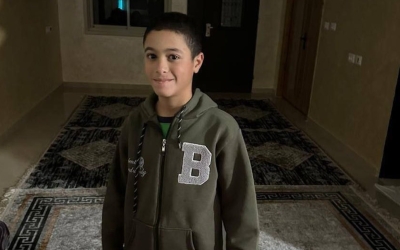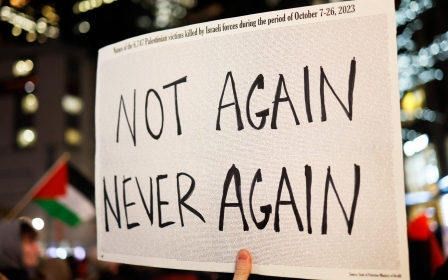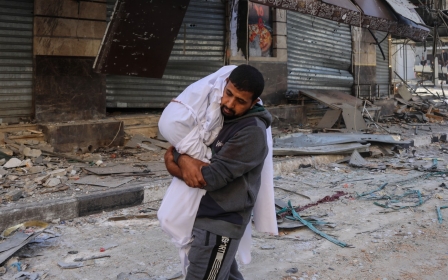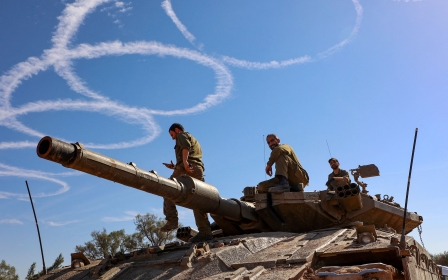Israel-Palestine war: What we know so far about the end of the truce in Gaza
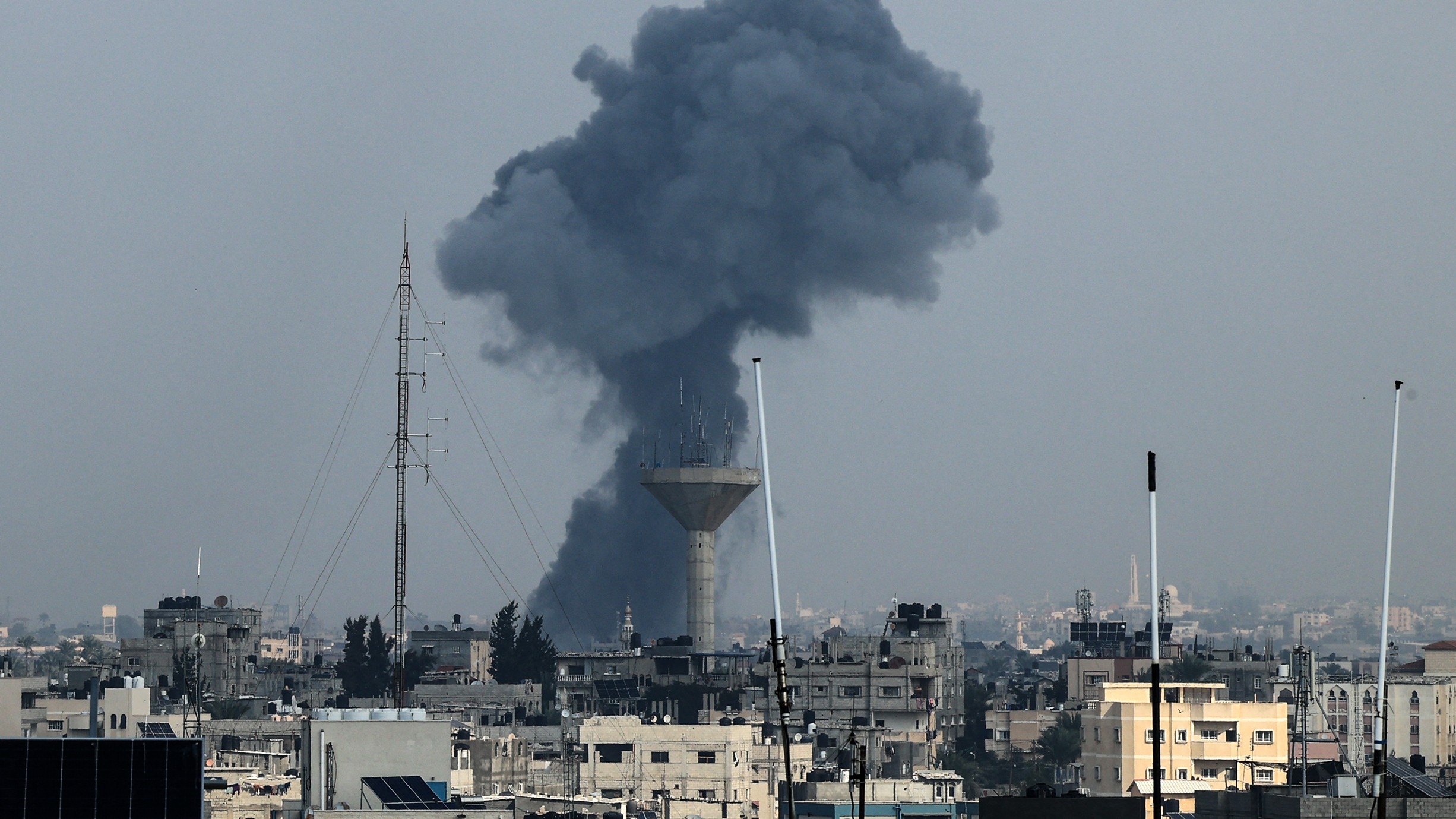
The seven-day truce between Israel and Palestinian groups in Gaza has come to an end, with hostilities having resumed immediately upon its expiry.
At least 32 Palestinians have been killed in Gaza on Friday since Israel resumed its bombardment of the besieged enclave.
The truce, which first began on 24 November, was initially set to last four days but was extended twice after negotiations with mediation from Qatar, Egypt, and the United States.
It expired at 7 am local time on Friday, with Israel and Hamas blaming each other for violating the terms of the agreement.
Over 15,000 Palestinians in Gaza - mostly women and children - have been killed by Israeli bombardment since the war began nearly two months ago.
New MEE newsletter: Jerusalem Dispatch
Sign up to get the latest insights and analysis on Israel-Palestine, alongside Turkey Unpacked and other MEE newsletters
It followed Hamas' attack on southern Israeli communities on 7 October, which killed around 1,200 Israelis and resulted in around 240 captives being taken to Gaza.
The week-long truce gave a brief respite to Palestinians in the enclave who have been under constant bombardment. It also paved the way for the release of Palestinians detained in Israeli prisons, and captives held in Gaza.
Middle East Eye takes a look at what we know so far about the end of the truce.
What happened during the truce?
During the week-long halt in fighting, 240 Palestinians were released from Israeli jails in exchange for 105 captives held in Gaza.
The exchanges took place every day of the truce, with 30 Palestinians freed each day, usually for around 10 Israeli captives.
The Palestinian detainees released consisted of women and young people. Earlier this week, CNN reported that of 150 Palestinians released at the time, 98 had never been charged.
The captives freed from Gaza are thought to have all been civilians, including several women and children.
The vast majority of them are Israeli citizens, though many have dual nationality. Twenty-three Thai citizens were also among those freed.
The truce allowed humanitarian aid to enter Gaza after much of the enclave was reduced to rubble during Israel's deadly assault. But aid deliveries remain well below what is needed for the enclaves 2.3 million people.
"Before the war, Gaza used to receive 500 trucks every day. We have never come close to that figure since 7 October," said Juliette Touma, director of communications of Unrwa, the UN agency providing aid to Palestinians.
Why did the halt in fighting end?
Israeli Prime Minister Benjamin Netanyahu said Hamas did not agree to release more captives, and therefore infringed upon the terms of the truce.
Hamas did not release all the Israeli women held in Gaza as had been previously agreed, Netanyahu's office said, adding that the Palestinian group also launched rockets at Israel on Friday.
"With the resumption of fighting we emphasise: The Israeli government is committed to achieving the goals of the war - to free our hostages, to eliminate Hamas, and to ensure that Gaza will never pose a threat to the residents of Israel," the prime minister's office said.
Hamas held Israel responsible for "resuming war and aggression" on the Gaza Strip. It said in a statement on Friday that Israel rejected all offers to release other captives.
What has happened since?
Within just a few hours of the truce ending on Friday, Israeli bombings have killed at least 32 Palestinians in Gaza, the Palestinian health ministry said.
Health ministry spokesperson Ashraf al Qudra told AFP that the dead included 10 people killed in al-Maghazi in central Gaza, nine in Rafah in the south, and five in Gaza City in the north.
Local media also reported that Israeli air strikes targeted an area near Nasser Hospital in Khan Younis, in southern Gaza.
Israeli warplanes dropped leaflets on Palestinians in Gaza, telling them to move further south, away from Khan Younis to the Rafah area, which borders Egypt.
Text from the Israeli leaflet said: "To the residents of al-Qarara, Kuza'a, Abasan, and Bani Suhaila, you must evacuate immediately and go to the shelters in Rafah. The city of Khan Younis is a dangerous combat zone."
Meanwhile, the al-Quds Brigades, the armed wing of the Palestinian Islamic Jihad movement (PIJ), said it attacked Israeli cities and towns on Friday morning in response to "crimes against our people", according to a statement by the group.
Israel's Home Front Command, which is responsible for civil defence, said it sounded air sirens in the southern Israeli settlements of Yad Mordechai and Netiv Hatara, near Gaza.
Are there efforts to stop fighting?
Qatar, which has played a leading role in mediating between the warring parties, said on Friday that negotiations were still ongoing to restore the truce.
Doha's foreign ministry expressed "deep regret at the resumption of Israeli aggression against the Gaza Strip".
"The Ministry stresses that the continued bombing of the Gaza Strip in the first hours after the end of the pause complicates mediation efforts and exacerbates the humanitarian catastrophe on the strip," it said in a statement posted on X, formerly known as Twitter.
Egyptian mediators had also been in contact with both sides since the war resumed, a source with knowledge of the talks told Reuters.
Middle East Eye delivers independent and unrivalled coverage and analysis of the Middle East, North Africa and beyond. To learn more about republishing this content and the associated fees, please fill out this form. More about MEE can be found here.


